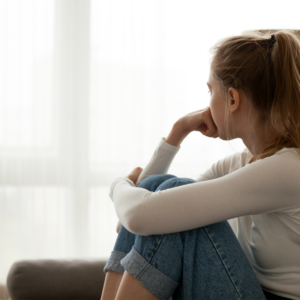Will I have to Suffer through “Post Pill Syndrome” When I go off my Birth Control?

After many years of being on the birth control pill, many women worry that “the pill” may have caused damage to their hormones resulting in amenorrhea (absent period), acne, weight gain, or hirsutism (male-pattern hair growth) among other symptoms. Though there is a possibility that this can happen, it is actually very rare. The problem with blaming the pill for these issues is that, you could be missing another significant cause of your symptoms that was either there all along or was developing over the years that you were on the pill, but were masked by the pill.
Cause of confusion:
The pill eliminates/masks many of these symptoms.
The hormones provided by the pill will:
- Cause a regular withdrawal bleed (period) even in women with amenorrhea no matter what the cause.
- Often eliminate acne and hirsuitism by binding-up androgens and providing a steady stream of estrogen.
In addition, the pill is often started at a young age for reasons other than contraception like cycle regulation, period pain, acne, heavy flow, ect.
I’m not saying that, if you stopped the pill and didn’t get your period or started to have hormonal symptoms it couldn’t be this post-pill syndrome. I am saying that there are other things that it could be and SHOULD be investigated. In addition, proper investigation is key to appropriate, effective treatment.
What are some other things that could cause symptoms after “the pill”
- It is common to have amenorrhea in the first 3-6 months of coming off of the pill. In the first 3 months your hormone production is still being influenced by the pill and so hormone blood work should not be done until after 3 months. In addition, hormone assessment SHOULD NOT be done when you are on the pill (it will always look like something is wrong and may result in misdiagnosis.)
- If you don’t get your period back after 3 months or your start to develop hirsutism and or acne you should be evaluated for PCOS.
- Other causes of amenorrhea that may have been masked by the pill would include hypothalamic amenorrhea, premature ovarian failure, and other congenital causes like Turner’s syndrome.
If I want to come off of the pill do I really just sit back and wait to see what happens?
NO!
In the first 3 months when we are waiting I recommend starting with diet and lifestyle modifications. If we want to encourage the body to start to ovulate on its own we need to make sure that it is well supported! In addition, many diet and lifestyle changes that would encourage ovulation in “post-pill syndrome” would be the same for the other conditions that I mentioned above. Let’s work on:
- Sleep- working on sleep is so important for our hormones to function optimally. We want a good 7-8 hours (or more) per night.
- Diet- blood sugar balance and appropriate caloric intake (eating enough) is key! This usually means lots of protein and fibre!
- Stress- the body doesn’t want to ovulate if it is stressed, it is a waste of valuable resources. Working on mindfulness, time management, delegation, meditation and exercise will help to decrease that cortisol and make way for reproductive function to resume! (If you know that this is a real challenge for you check out “The Pleasure Mindset Bootcamp” on Facebook for some great tools and a network of women to get your head in the right space!)
AT HEALTH OVER ALL, HORMONES ARE WHAT WE DO! We can help you with your symptoms, but an important part of treatment is proper assessment. In addition, sometimes working on diet and lifestyle in the first 3 months can be a vital part of the treatment and assessment. We have a framework that will ensure that you get the answers that you need and a treatment plan that works.
Book your free Alignment Call HERE to find out how you can work with us.
In health,
Dr. Lisa Maddalena, ND
Leave a Reply